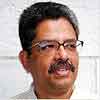An ambassador might be an honest man sent to lie abroad for the good of his country, but lower down the food chain the definition of the diplomat seems to be undergoing a change. If recent revelations are to be believed, diplomats are sent abroad to speak their version of the truth, and express it in as undiplomatic a language as possible.
Thus we know what diplomats think of world leaders (unless all that stuff about ‘alpha dogs’ and ‘voluptuous blondes’ in the Wikileaks revelations is code for something else). Their thoughts are recorded in (what they assumed were) secret messages. Which means the rest of us know all about them now.
International diplomats need a crash course from some of our politicians and businessmen who tell their children from the day they are born: “Don’t put anything down on paper.” One reason the best stories of India’s best known names are part of the oral rather than written tradition is this natural reluctance to have anything traced back to them. Our historians crib that Indians are poor record keepers, and do not preserve letters, for example, making them difficult subjects for historical assessments. Yes, but at least they don’t get caught with their pants down like records-conscious westerners do.
Still, it is one thing for Wikileaks to ferret out just what American diplomats thought of Muammar Gaddafi, but quite another for American diplomats to contribute to destroying bridges between peoples, something they seem to be particularly adept at.
Of course, not every reaction is a deliberate, well-planned move to cause mayhem. Last year, a former superpower complained to a current one when it was not informed – as it should have been, according to a treaty – when one of its citizens was arrested. If that is confusing, let it go. What you must love is the excuse the US gave to Russia for not following the rule: “We pressed the wrong button on the fax machine.”
That is my favourite official excuse – in the same class as “The dog ate my homework” (although, of course, a dog would have to be able to swallow a computer today if it is keen on eating homework) or “I forgot to take my head out of the alligator’s mouth in time”.
Recently the United States earned the name of ‘Ankle Sam’ in the Indian media following an incident where some students (who may or may not be in the country illegally) were tagged with anklets so the authorities could keep tabs on them.
In the old days, a diplomat might have changed the topic or spoken about India’s chances in a cricket tournament if the topic had ever come up in public. But today’s diplomats love to rush in where angels fear to tread. “These anklets are very hip and happening,” said an American diplomat, putting a new spin on punishment, shame and humiliation (she later apologised, but we are dealing with first instincts here).
The implication was that such things as electronic anklets, cuff links, prison-issue overalls are actually fashion statements that some people will kill for (and doubtless some people have). After all, given a choice between wearing a wedding ring, for example, and walking around in handcuffs which are then attached to your feet, wouldn’t you rather choose the latter.
That all-time favourite response of public figures, “No comment”, and its cousin “I was misquoted” are no longer popular with the postmodern diplomat, who sees it as his mission in life not just to speak the truth but to cause as much damage to international relations as possible. You can imagine the conversation at a diplomats’ conference: “Have you gone up the nose of the Chinese today?” To which the reply might be, “No, but I got Japan to send an angry letter to a farmer in New Zealand.”
In today’s school of diplomacy – going by recent trends – you call a spade a spade, and if a woman looks ugly you tell her so. None of that creative ambiguity of poetry or doctors’ prescriptions.
Perhaps the profession of diplomacy is undergoing a change. It is no longer defined as one where you tell someone to go to hell so sweetly that he actually looks forward to the trip. Many who have ambitions of a career in diplomacy might be ruining their chances even as you read this. Asked if they want to be diplomats, they are answering, “Well, yes and no.” That answer will be considered old-fashioned diplomacy today.
